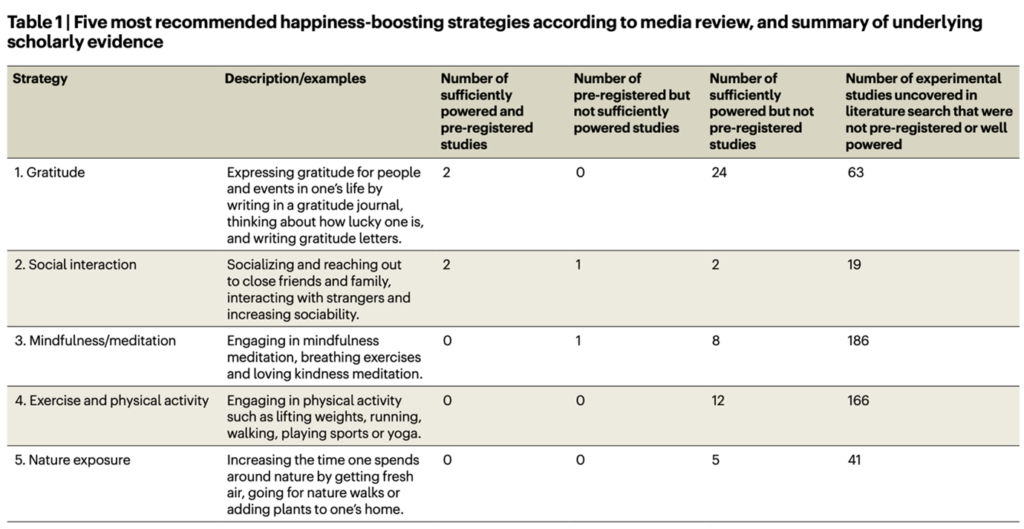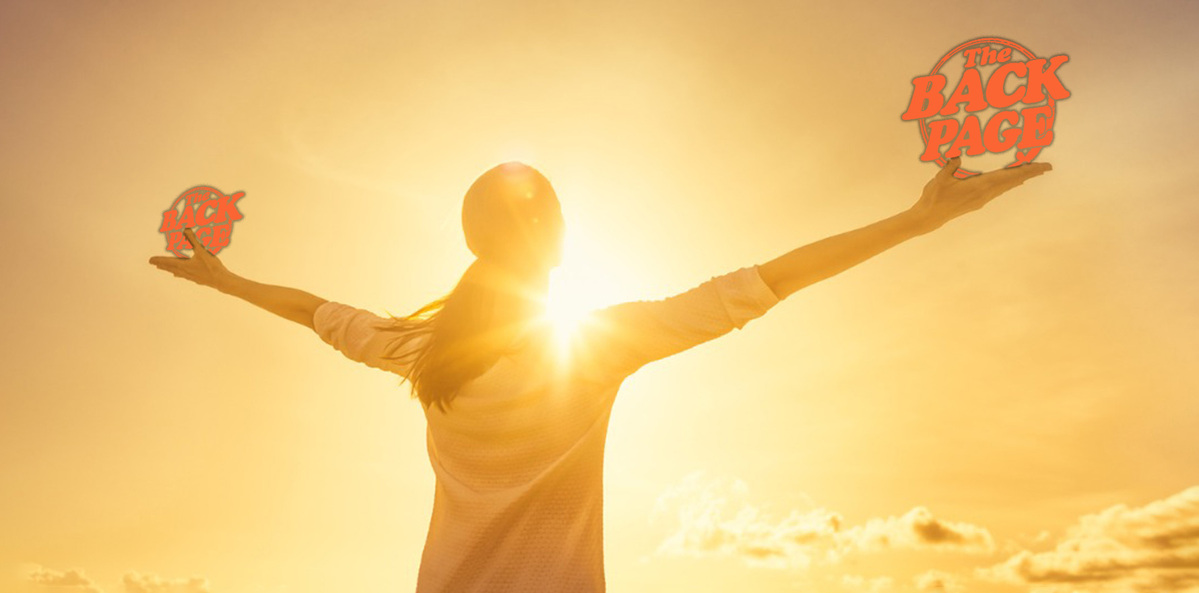The evidence for the media’s favourite ‘science-based’ wellbeing hacks is weak.
We all just want to be happy, right?
The top search on the font of all human wisdom, Google, certainly suggests so:

So does the quantity of happiness hacks-type news stories that pop up regularly for our clicking pleasure, usually featuring a combination of mindfulness/meditation, exposure to nature, exercise, expressing gratitude and social interaction.
But besides just sounding good, what’s the strength of the evidence that these practices make us happy?
This systematic review in Nature Human Behaviour, which begins with a nice rundown on the replication crisis in psychology research, applies a quality detector to the wealth of studies claiming to provide evidence that such things do improve happiness.
Most of them – spoilers – cut no mustard in a post-replication-crisis world.
For their scholarly literature review they found 11,322 papers, which were screened down to just over 1000 by a team of six research assistants (the paper does not record how the RAs’ happiness levels were looking by the end of that process) and winnowed further to just 57 by the authors. In line with modern best practice, they wanted studies that were pre-registered, to avoid the temptations of p-hacking, and had sufficient statistical power to make false positives unlikely.
Here’s how those top five hacks promoted in mainstream media did on those two fronts:

Analysing the studies, here’s what they found:
Gratitude: Based on a couple of pre-registered and sufficiently powered studies, there’s “reasonably solid evidence” that practices such as writing a gratitude letter increased positive affect temporarily.
Social interaction: There’s “solid evidence” that talking to strangers boosts mood, from three studies, though the authors note about one: “The students assigned to spend the whole time talking reported enjoying the experience significantly more than those who were able to spend part of the period in solitude … Of course, this large effect might be partly explained by the fact that sitting silently in a psychology lab is boring.” There’s “fairly compelling evidence” that acting more extraverted can enhance happiness; however, the body of research is “small and narrow”.
Mindfulness/meditation: “Limited evidence.” There were zero pre-registered + properly powered studies into this enormously popular topic. Of the well-powered studies almost none had an active control group and thus failed to account for the confounding factor of social interaction. The one pre-registered study failed to find any benefit.
Exercise: No pre-registered studies, and only a dozen well-powered ones. The latter found a single bout of exercise to be a mood-enhancer, “but only in comparison with rather boring activities, such as sitting in silence or watching a documentary on bookbinding”. Those controls hardly give the null hypothesis a sporting chance. All but one of the longer-term programs failed to yield any happiness benefits.
Nature: Another zero on pre-registered trials, and only a few decently powered ones that demonstrated a positive effect on mood. The studies’ within-subject designs – “walk in a forest, then walk on a city highway and tell me which makes you feel better” – made them vulnerable to second-guessing by the subjects.
Given “the eagerness with which they have been disseminated to the public”, the authors say, we should be studying these things properly. However, ironically, the large body of weak research may act as a barrier, with editors assuming a surfeit of evidence already exists.
Oh well. The Back Page is off to run through a forest while chatting to strangers and then mindfully write ourselves a note about how lucky we were to do it – after all, absence of evidence isn’t evidence of absence, and sitting alone in a windowless room wallowing in grumpy feelings doesn’t work either.
Send a story tip to penny@medicalrepublic.com.au to instantly enhance your subjective wellbeing.


